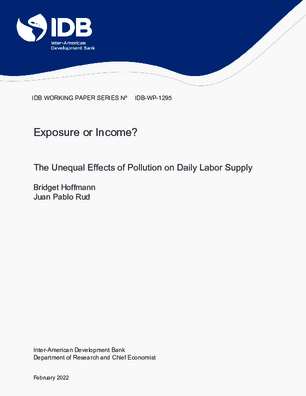Exposure or Income? The Unequal Effects of Pollution on Daily Labor Supply
Date
Feb 2022
Summary
We use high-frequency data on fine particulate matter air pollution (PM 2.5) at the locality level to study the effects of high pollution on labor supply decisions and hospitalizations for respiratory disease in the metropolitan area of Mexico City. We document a negative, non-linear relationship between PM 2.5 and same-day labor supply, with strong effects on days with extremely high pollution levels. On these days, the average worker experiences a reduction of around 7.5% of working hours. Workers partially compensate for lost hours by increasing their labor supply on days that follow high-pollution days. Informal workers reduce their labor supply less than formal workers on high-pollution days and also compensate less on the following days. This suggests that informal workers may experience greater exposure to high pollution and greater reductions in labor supply and income. We provide evidence that reductions in labor supply due to
high pollution are consistent with avoidance behavior and that income constraints may play an important role in workers' labor supply decisions.
high pollution are consistent with avoidance behavior and that income constraints may play an important role in workers' labor supply decisions.




